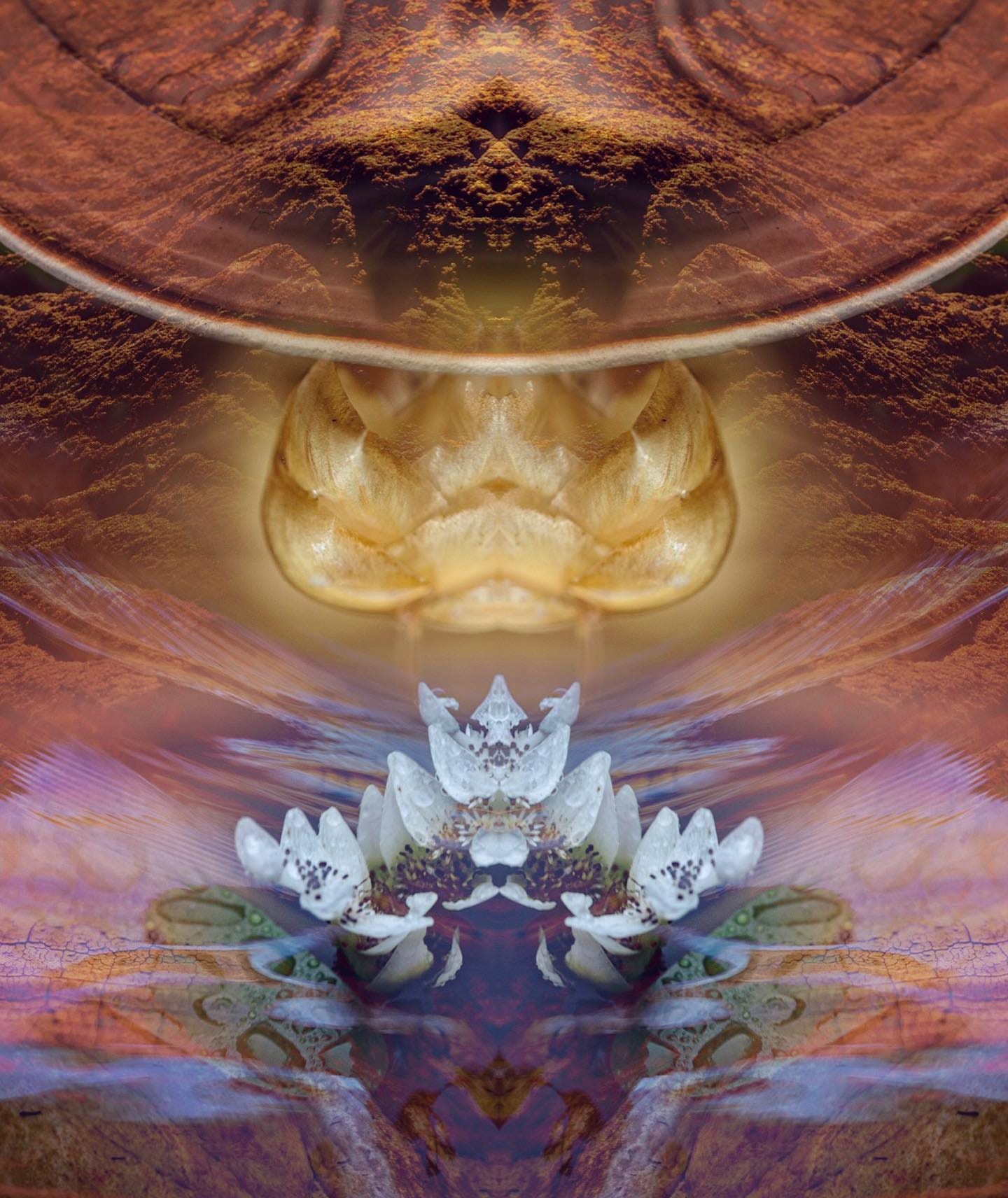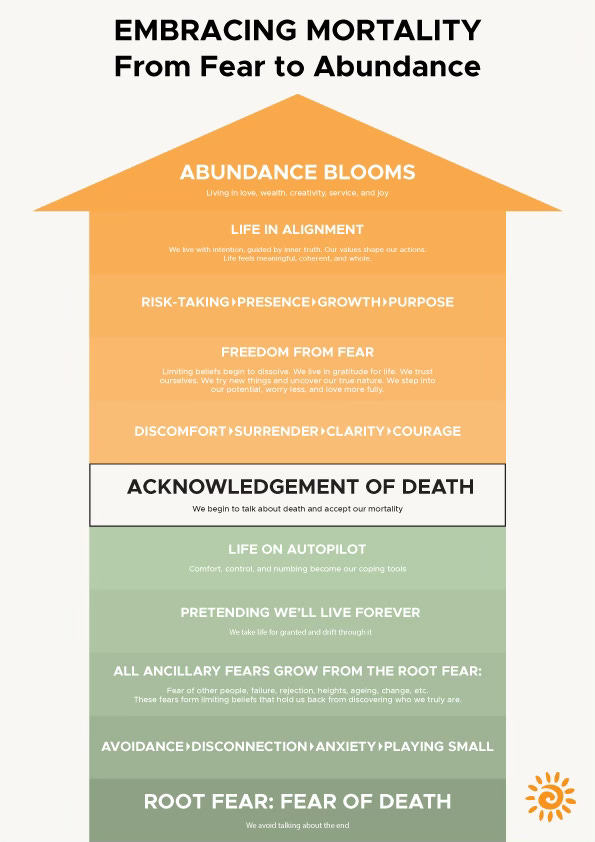The Problem Hiding in Plain Sight
There’s a lie I was sold by society—one so deeply ingrained that I rarely questioned it. The lie is this: if you ignore death, you don’t have to face it.
That’s like believing that ignoring your bank balance means your credit card bill doesn’t exist.
Death is a universal human experience, yet how often do we truly contemplate our own end? For most, the answer is rarely. When the thought arises, it often feels overwhelming, prompting us to avoid it altogether.
Many prefer to sweep mortality under the rug, acting as if it doesn’t exist—because, frankly, it’s frightening.
Read my article on the fear of death.
This avoidance has shaped Western society for centuries, fostering a disconnect from an essential truth of existence. But here’s what I’ve come to realise: ignoring death isn’t protecting us—it’s killing us.
This newsletter project explores how our denial of death disrupts the delicate balance between life and death. It uncovers how our subliminal fear of death shapes our choices, priorities, and sense of purpose in ways we barely notice, both as individuals and as societies. It shines a light on how this fear creates limiting beliefs in life, preventing us from discovering our true potential.
We can fill our days with distractions, keeping busy to avoid the uncomfortable reality that time is slipping away. But what if, instead of avoiding it, we allowed this truth to wake us up?
I would argue that death phobia in the west is a central blocker to human evolution and it’s time we faced it.
Our fear of death is a problem so vast, so universal, and yet so oddly ignored. This challenge affects every single person on the planet, yet it's often brushed aside, cloaked in silence, confusion or outright fear.
I’m deeply curious about this dilemma. And the more I explore these questions, the more I see how our relationship with mortality affects everything.
How Ignoring Death Shapes Our Lives
From the way we work to the way we love, death denial keeps us trapped in patterns of avoidance. We put off difficult conversations, delay our dreams, and act as if we have all the time in the world. But deep down, we know better.
Consider this: How much of your time is spent doing things that don’t really matter? How often do you tell yourself, “I’ll start that project later,” “I’ll call them next week,” or “I’ll take that risk when the timing is right”? I have been guilty of these things frequently in my life.
We live in a world that prioritises productivity over presence, financial security over fulfilment, and comfort over courage. And all of it is rooted in a refusal to confront our own mortality. The irony? The very thing we fear—the end of our time—is the thing that can teach us how to live.
A Personal Wake-Up Call
For years, I chased success and measured my worth by achievements and personal gain, believing there would always be more time—until life shattered that illusion.
Near-death experiences, sacred plant ceremonies, and sitting with the dying as a Soul Midwife forced me to confront mortality head-on. Each moment stripped away who I thought I was, revealing a deeper truth beyond fear and the fragile need for control.
But instead of leaving me paralysed, this awareness became my greatest teacher. It made me question everything—my priorities, my fears, and the way I was living. And it led me here, to this work, and to this community of seekers who are ready to stop waiting and start living.
The Cultural Consequence of Death Denial
Our reluctance to engage with mortality has created ripple effects across our society. We spend billions on anti-aging products, medical procedures, and fitness regimes designed to “buy more time.” Entire industries thrive on our fear of aging and death, convincing us that with the right product or treatment, we can somehow outrun our inevitable fate.
But what if, instead of fearing death, we accepted our mortality, found peace with death and used it as motivation? What if we accepted that life is short and let that truth guide our decisions? How many more dreams would be pursued, risks taken and moments cherished?
There’s also a spiritual cost to avoiding death. When we refuse to engage with it, we often numb ourselves—through busyness, technology, or consumerism.
We distract ourselves from deeper questions: Why am I here? What truly matters? How do I want to be remembered? These are the questions that shape a meaningful life, yet we often only ask them when faced with tragedy.
Reframing Our Relationship with Death
Imagine for a moment if we normalised conversations about death. If instead of seeing it as a grim subject, we saw it as a teacher.
Many ancient cultures embraced death as a natural part of life, integrating rituals and philosophies that kept mortality front and centre—not to provoke fear, but to inspire purpose.
In Buddhist teachings, monks meditate on their own death daily as a practice of presence and gratitude for being alive. In Mexican culture, Día de los Muertos celebrates the lives of those who have passed, emphasising remembrance rather than sorrow.
What if we, too, incorporated such practices? What if we acknowledged our mortality every day—not in a morbid way, but as a reminder to truly live?
I have come to understand that acknowledging death doesn’t make life darker. Spoiler alert: it makes it brighter.
What Happens When We Acknowledge Our Mortality?
We stop wasting time on things that don’t matter.
We speak the words that need to be said.
We take the leaps that scare us.
We step out of our comfort zones and embrace growth.
We show up fully, knowing someday isn’t guaranteed.
Our relationships deepen because we express love without hesitation.
We take bold risks—starting the business, writing the book, making the move—because failure is less terrifying than regret.
We take more care more for one another, and the planet.
Everyday moments feel richer, filled with gratitude, presence, and joy.
We prioritise meaning over mindless busyness, choosing experiences that light us up instead of just filling time.
We begin to feel in service to something greater.
When we start to let go of our fear of death, we start truly living.
As our lives align, and purpose deepens, we begin to experience abundance and wealth in every form.
For me, embracing mortality has created radical clarity. It’s brought me onto the path to realising my own deeper potential. Because once we stop running from death, we can finally start embracing life. It’s why I created Dying to Live with Purpose.
Here’s my invitation to you:
Write down three things you’ve been putting off, believing you had more time? Be honest—what dreams, conversations, or experiences are you postponing for a future that may never arrive?
Please hit reply and share your list.
If this letter resonated, please share it with someone who might need it.
Live Happy,
Hoppy
Want to go deeper? Read these:




